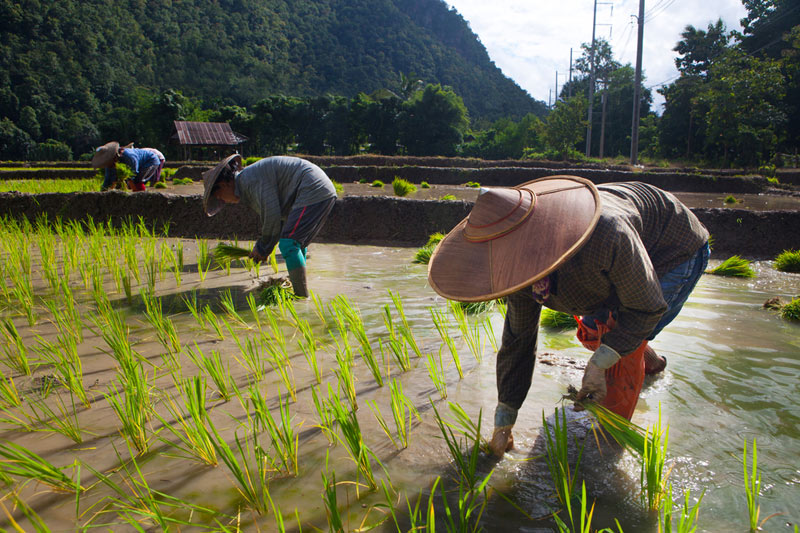HSBC Holdings Plc (LON:HSBA) has noted a significant increase in the cost of rice, which has surged to its highest point since 2008, according to their economic forecast released on Friday. This rise could pose additional challenges for central bankers striving to keep inflation under control.
The export price for rice from Thailand, widely regarded as a global benchmark, has soared by nearly 50% year-on-year to over $600 per ton. The sustained high prices of rice, unlike short-harvest cycle crops such as tomatoes and onions, present a particular challenge for policymakers.
HSBC's research reveals that over the past quarter-century, the proportion of global rice imports relative to consumption has approximately doubled. Following the 2008 food price scare, this trend saw an additional rise of around 4 percentage points. This suggests that any disruption in one economy could have significantly broader impacts on others compared to previous years.
Erratic weather patterns including unpredictable rainfall and droughts are negatively impacting crop yields globally, thereby reducing supply and increasing prices. In response, India, the world's leading rice exporter, has imposed restrictions on overseas shipments in an attempt to control local prices, which has further tightened global supplies.
Asian economies such as Malaysia and the Philippines heavily rely on rice imports and are therefore significantly affected by these price increases. Korea and Taiwan also show considerable dependence on imported rice. Meanwhile, other economies like Indonesia are similarly vulnerable. While Hong Kong and Singapore import all their rice requirements, their strong purchasing power enables them to secure supplies readily.
This situation is reminiscent of the 2008 Asian food price scare when rising rice prices in several economies rapidly affected other markets. Consumers and governments scrambled to secure supplies leading to increased prices for other staple foods like wheat as buyers sought alternatives.
This article was generated with the support of AI and reviewed by an editor. For more information see our T&C.
